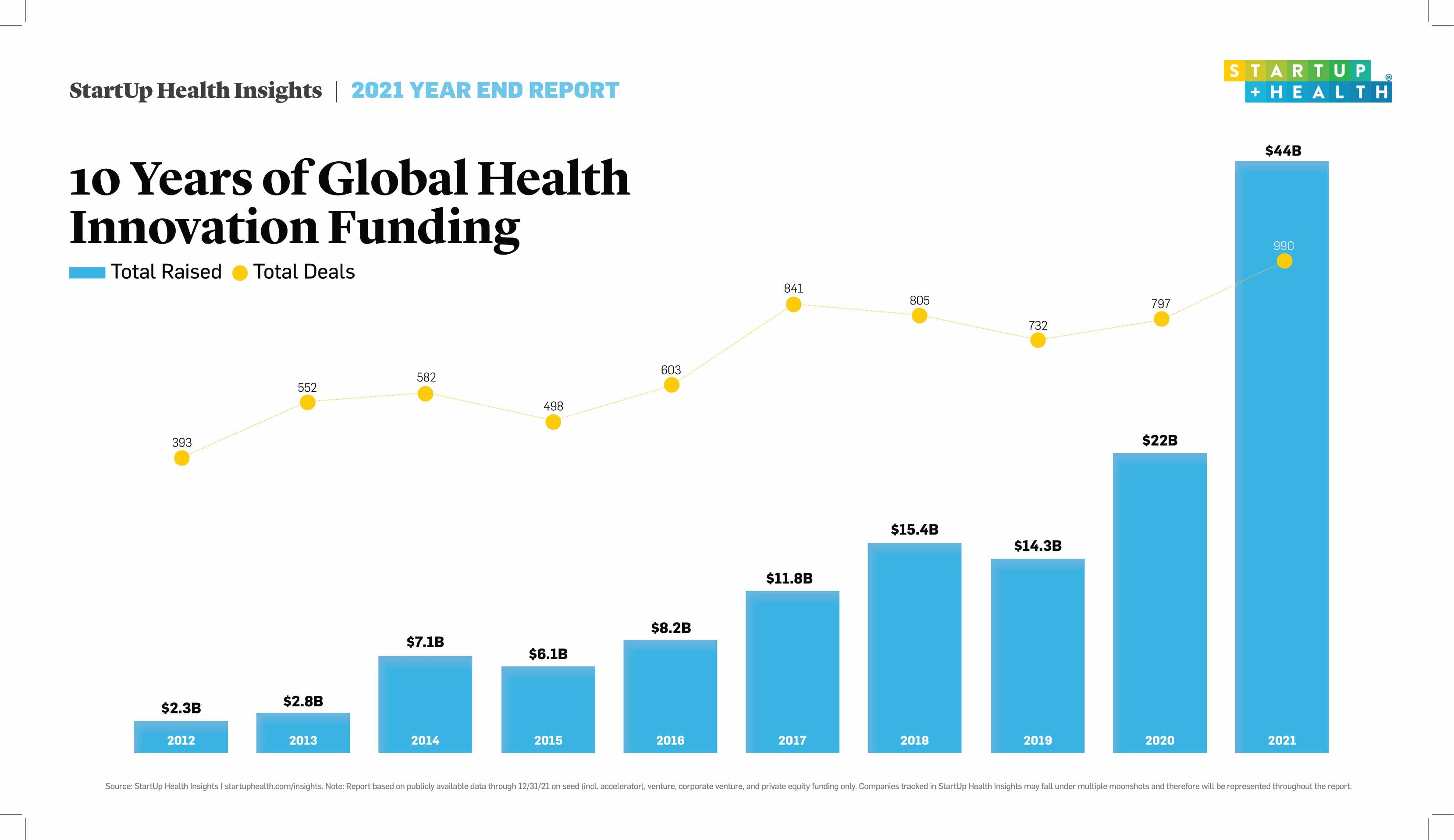
@ShahidNShah


The pandemic is now two years old. A population the size of Finland has so far died from COVID-19 and tens of millions more are dealing with its side-effects. Even for those who haven’t fallen seriously ill, nearly every aspect of our lives has been disrupted by COVID-19: from how we socialize and communicate, to how we study and work. We are all familiar with the crisis, but how has it impacted innovation, especially in the health and healthcare sector?
Most obviously, the industry has seen a massive wave of investment, innovation and new entrants from the technology, telecom and consumer industries. In 2021 alone, $44 billion was raised globally in health innovation twice as much as 2020 and the acquisition of health and health tech companies rose 50%. We're also seeing signs of disruption within the industry itself. Up to 80% of providers in the US are planning to invest in technologies including digital health, artificial intelligence (AI) and machine learning, as well as tools to support clinical staff and caregivers over the next five years.
Continue reading at eforum.org
Healthcare organizations must prioritize performance and sustainability when integrating digital health tools as a strategy to answer healthcare's most pressing questions, Dori Cross, PhD, wrote in a …
Connecting innovation decision makers to authoritative information, institutions, people and insights.
Medigy accurately delivers healthcare and technology information, news and insight from around the world.
Medigy surfaces the world's best crowdsourced health tech offerings with social interactions and peer reviews.
© 2025 Netspective Foundation, Inc. All Rights Reserved.
Built on Apr 22, 2025 at 12:57pm